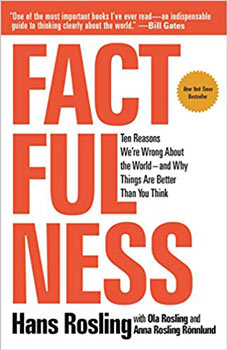We’re not all born angels. When I was five years old, I told a lie. Of course, I don’t remember what the lie was, but I clearly recall my father’s reaction: “You can’t lie to me—it’s written all over your face!” Imagine my horror at this discovery—when I tell a fib, writing appears on my face and everyone can see it! I didn’t need commandments, spankings, or threats of eternal hell. My deeds would be publicly obvious. That was enough to keep me on the right path.
Like all good parents, mine aimed to raise children with noble qualities. They understood that the habit of telling the truth would make me a better person. Many years later, through yoga’s teachings, I discovered a direct connection between truth and happiness.
Truthfulness: A Universal Virtue
Confucius said, “Sincerity and truth are the basis of every virtue.” Yogis agree. Satyā, truthfulness, is one of the yamas, listed in the Yoga Sutras. This virtue is often translated as non-lying.
Indeed, truthfulness is stressed in all religions and philosophies, both Eastern and Western. Buddha’s five precepts to moral conduct include abstention from lying. One of the Ten Commandments prohibits bearing false witness. And science, void of religion and philosophy, strives for truth.
It’s worth noting that Eastern philosophies regard telling the truth as a practice that leads to knowing the truth. The highest truth is to realize your own Divinity—spiritual enlightenment. To this end, yoga masters tell us that truthfulness is vital.
Why Truthfulness is So Important
Living in integrity is the foundation for mental strength and purity. A strong and pure mind is necessary for spiritual growth.
A strong mind is a seeker’s best friend. It’s steady and unwavering through life’s storms. A strong mind can overcome negative thinking and make good choices. When you’re truthful to yourself and others, your mind gains strength. Your meditation practice is greatly enhanced by this.
On the other hand, a weak mind is restless with mental chatter. It can’t stop the internal noise, and as in a dense fog, a weak mind lacks clarity. It makes bad choices.
Lying weakens the mind. For example, telling a lie often requires that we create cover-up lies. Remember the line from Walter Scott’s poem, “Oh, what a tangled web we weave when first we practice to deceive!” Even a little white lie causes restlessness because we must remember it—and then protect it with more lies.
A pure mind is insightful and intuitive. It’s not agitated by guilt or shame. A pure mind is at peace. And it understands deeper, subtler truths. Through a pure mind you can see yourself as Divine. And you can see the Divinity in others as well.
Living in Truthfulness
Living truthfulness is a primary stepping stone along the spiritual path. If that stone is weak, you will stumble and fall. To paraphrase a great saint’s aphorism:
“Know that secret cunning and silent hypocrisy…comprise the great corrupt discipline which removes one from the spiritual path.” – Swami Muktananda
This is a powerful statement. If we value our spiritual progress, we must commit to telling the truth. As this quote implies, this virtue starts in the depths of our own mind.
A Five-Minute Assessment Practice
Journaling is a great way to stay on track. It takes less than five minutes a day to check yourself. Each morning, write a short, simple statement in your journal: “Today I will practice telling the truth to myself and everyone I meet.”
Each evening, review: “How did I do?” Note how your commitment to non-lying was challenged. And don’t forget to mention your successes.
Remember, increasing virtues like truthfulness purifies your mind. It boosts your progress on the spiritual path while bringing peace and happiness to your life. Speaking the truth eventually shows you the ultimate truth—that you are Divine.
Why do you value telling the truth? Please share your thoughts in the comments below.
Chityānanda has been a disciple of Svāmī Gurupremānanda Sarasvatī since 1975. She teaches meditation and yoga as a spiritual path in Santa Cruz, California.



This article prompted me to reflect on and think about how I measure up to the standard and examples that were portrayed. Upon this self-examination I concluded that when it comes to expressing truthfulness externally, whether in voice or action, I measure up pretty well. Probably because I know other people are watching and others are affected by what I say or do. I do not measure up to the same extent regarding being true to myself, internally. I conclude that lying to myself is a lot easier than lying to others, at least for me. Unacceptable! I must close this gap.
Thank you Svāmī Chityānanda, for prompting me to conduct this self-examination.
Excellent, Richard! You got the point and are taking the action that I’d hoped to convey with this article. Thank you for that! Namaste.
The Roslings prove in many ways how we may THINK we know the truth, when in actual fact, our information may be out of date and no longer—if ever— true. They also show that once people SEE the truth as it actually is, they are able to change their minds and direct their energies where it is most useful.
We can say the same thing about the Guru.
Thank you for your comment, Roxie. I can add that there is research* showing how people often do not change their first impressions (what they think is correct knowledge) even when they’re presented with proof that their old knowledge is incorrect. The mind is a very tricky thing, and it holds on to its notions — as if its life depends on it. That’s why meditation is so important. We come to the Guru with all kinds of misconceptions. He enlightens us, but if we don’t meditate, it doesn’t take root. Namaste.
*Refer to the book recommended with this post.
Good morning Svāmī Chityānanda. The stoic would say that lying is not virtuous. I would agree with this. To lead a good life and be a good person, as our Gurudev teaches us, one simply should not lie. It robs us of our integrity.
Thank you, James. I like your use of the word simple — as if it’s always easy to not lie. But it’s not. Lying is often a convenient way to avoid discomfort. The commitment to truthfulness is a many-layered practice. We need to be true to ourselves, true to our spiritual path, and true to others. That’s why there will be more articles on Quiet Karma about this important principle. Namaste.
I have often considered what is meant by a strong mind and a pure mind. Your explanation here is most helpful; thanks!
Another way that lying weakens the mind is that it stems from not liking something about oneself and therefore wanting to cover it up. The consequence, however, is an ongoing fear of being exposed for “what you are,” and ALSO exposure for lying on top of that!
Thank you for that perspective, Richard. I think we’re very good at denying ourselves in this way. Better to face our shortcomings head on and put in the effort to fix them. Otherwise, ego just gets stronger, and we dig a deeper grave. Fortunately, MEDITATION is an easy and effective way to deal with ego. Namaste.